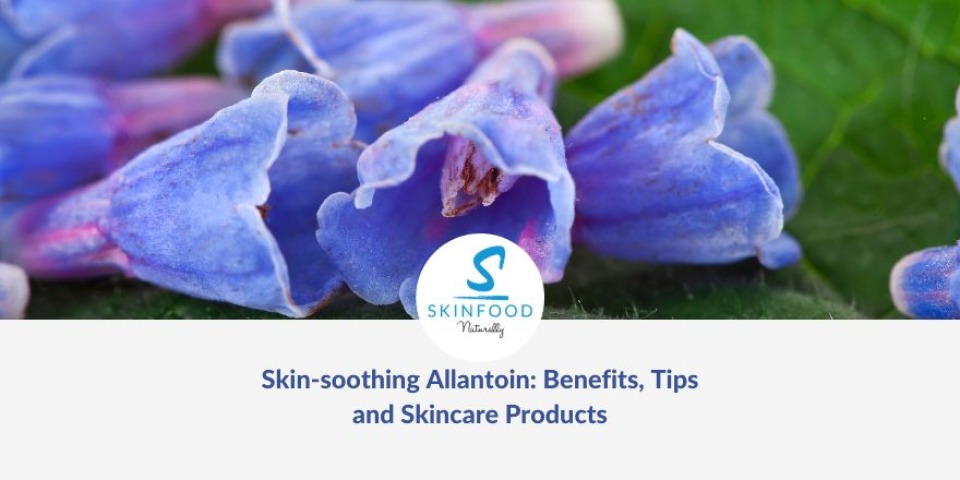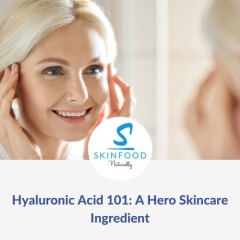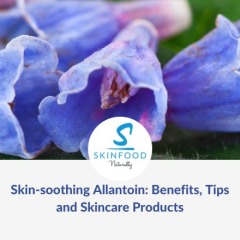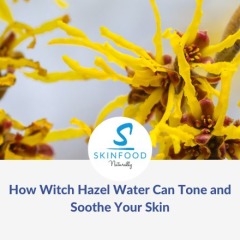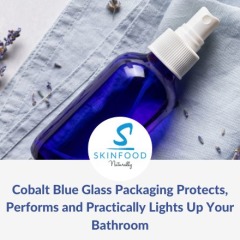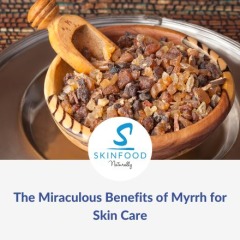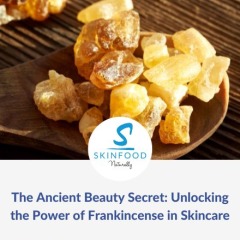Derived from natural sources like the comfrey plant, allantoin is renowned for its moisturising, hydrating and soothing properties.
Helping to calm irritation, exfoliate dead skin cells, and improve skin texture, the organic and lab-created ingredient is used in various beauty applications, from skincare creams and moisturisers to exfoliators and masks.
Known for its ability to help create healthy, radiant skin, allantoin prevents dryness and irritation, promotes skin cell renewal and gently exfoliates your skin. Due to its non-irritant qualities, allantoin is an efficacious moisturising ingredient in skincare products, particularly for skin ageing and sensitive skin needs. It helps to soothe or prevent skincare concerns such as dry and itchy skin or minor skin irritations.
Allantoin 101: Introducing the Incredible Ingredient
Allantoin, a key ingredient in skincare products, is derived from various sources. The chemical component can be extracted from the comfrey plant, native to Asia and Europe. Allantoin in plants was discovered in the 1920s, but allantoin in uric acid from animals was first isolated in the 1800s.
Comfrey is known for its skin-soothing effects. Allantoin also has anti-inflammatory properties and accelerates skin cell renewal in damaged skin. It is also keratolytic, which means it can increase the cells’ water content while supporting the process of shedding the skin’s outer layers. The skincare ingredient may also help boost skin smoothness, support wound healing, and promote cell proliferation and longevity.
“I first found comfrey as an ingredient in Neal’s Yard products,” says Sarah Butler, Founder of Skinfood Naturally. “Later, I researched allantoin as an extract, and since then, it’s become very popular in natural skincare products because it’s so versatile,” Butler adds.
Benefits of Allantoin for Your Skin
“Allantoin is an excellent multipurpose ingredient with lots of benefits,” says Sarah. “It helps moisturise skin, soothe irritation, and speed up cell renewal to improve damaged skin by gently exfoliating dead skin cells,” Sarah continues.
Its ability to gently exfoliate skin helps increase hydration by allowing cells to retain more water. The exfoliating action helps to make skin appear brighter and smoother as it also helps to boost collagen production, plumping out fine lines and wrinkles.
“It’s gentle on sensitive, compromised or irritated skin, so it’s great for managing the symptoms of inflammatory skin conditions like acne, eczema, psoriasis and rosacea,” Sarah adds on why skincare consumers like allantoin.
Moisturising
Allantoin moisturises and prevents dryness and irritation. It is a crucial ingredient in skincare products that soothe the skin and improve hydration levels. Increasing our skin cells’ water content, allantoin helps fight against transepidermal water loss (TEWL), keeping our skin plump and youthful.
Its moisturising effect is particularly beneficial for dry or sensitive skin, as it can help alleviate discomfort and reduce redness. Allantoin can also improve the texture of our skin by exfoliating dead skin cells, leaving it smoother and more radiant.
Exfoliation
The exfoliation benefits of allantoin can improve our skin’s overall health and appearance. Incorporating allantoin into our skincare routine can help us achieve healthier, more vibrant-looking skin by effectively exfoliating and revitalising our complexion.
Incorporating allantoin into our skincare routine can provide:
-
Gentle exfoliation. Allantoin helps to slough off dead skin cells, revealing fresh and radiant skin. Its gentle exfoliating properties make it suitable for those with sensitive skin.
-
Smoother texture. By removing the buildup of dead skin cells, allantoin helps improve our skin’s texture, leaving it smoother and more even.
-
Enhanced product absorption. Exfoliating with allantoin allows our skincare products to penetrate deeper into the skin, maximising their effectiveness.
-
Brightening effect. Regular exfoliation with allantoin can help reduce dullness and promote a brighter complexion, giving our skin a youthful glow.
Acne
As skincare enthusiasts, we’re always searching for effective solutions to combat acne, and allantoin is here to help.
Using skincare products with allantoin, such as creams and masks, can benefit your routine’s acne-fighting abilities and your acne-prone skin by:
-
Reducing inflammation. Allantoin is a calming agent, soothing redness and inflammation associated with acne breakouts.
-
Promoting cell renewal. It helps to speed up acne lesions' recovery process, preventing scarring and minimising post-acne marks.
-
Hydrating and moisturising: The ingredient moisturises and prevents dryness, which is essential for maintaining a healthy skin barrier and preventing excessive oil production.
-
Exfoliating gently: Allantoin exfoliates dead skin cells, unclogging pores and improving skin texture, ultimately reducing acne.
Scars
Allantoin can help reduce the appearance of scars and improve the skin’s overall condition. It’s a powerful ingredient that promotes skin cell renewal and can benefit various skin types.
You can find allantoin in serums or creams specifically formulated for scar treatment. The soothing ingredient helps repair damaged skin cells and stimulate collagen production, making scars less noticeable. It also has moisturising properties that keep the skin hydrated and healthy.
Wound care
Allantoin is an effective ingredient in wound care. To harness these properties of allantoin, look for skincare products that contain this ingredient. If you have concerns about damaged skin, it’s always best to consult a cosmetic scientist or dermatologist for personalised advice and recommendations.
The ingredient can enhance cell turnover and promote healthy skin by:
-
Accelerating cell renewal. Allantoin stimulates cell regeneration, decreasing infection risk in damaged skin.
-
Reducing inflammation. The anti-inflammatory properties of allantoin help calm irritated skin and minimise redness and swelling around wounds.
-
Moisturising and protecting: Allantoin acts as a humectant, attracting and retaining moisture. It forms a protective barrier that prevents moisture loss and hydrates the wound.
-
Minimising scarring: By promoting healthy tissue growth, allantoin can help reduce the appearance of scars and improve overall skin texture.
Does allantoin work particularly well for any specific skin type?
Allantoin is an all-around excellent ingredient with properties for all skin types. Here’s how it can prove effective for your skin type:
For ageing skin
Allantoin works particularly well for dry and mature skin types due to its moisturising and skin-plumping properties. It does this through:
-
Deep hydration. Allantoin helps to moisturise the skin, preventing dryness and reducing the appearance of wrinkles. It increases the water content in cells, keeping the skin plump and youthful.
-
Skin regeneration. The ingredient stimulates new skin cell growth, which can help decrease the signs of ageing and improve the skin's overall texture and tone.
-
Soothing effects. Allantoin is a calming agent, soothing the skin and reducing inflammation, which can be particularly beneficial for ageing skin prone to irritation or redness.
-
Exfoliation. Allantoin also has exfoliating properties, supporting users in removing dead skin cells and improving skin texture, helping to make the skin appear smoother and more radiant, reducing the appearance of fine lines.
For sensitive skin
Allantoin works exceptionally well for sensitive skin types, providing soothing effects. Finding skincare products that won’t cause irritation or redness can be challenging, which is where allantoin comes in.
It has been proven to moisturise and prevent dryness, keeping your skin hydrated and supple. Allantoin’s calming properties help to lower inflammation and redness, proving an excellent ingredient for sensitive skin.
For even skin complexion
While ideal for all skin types, allantoin works particularly well for specific skin types, such as people with hyperpigmentation or uneven skin tone, as it helps to fade dark spots and promote a more even complexion. Allantoin is beneficial for creating an even skin tone as it helps to:
-
Fade dark spots: Allantoin can inhibit melanin production, the pigment responsible for dark spots. It can help fade existing dark spots and prevent new ones from forming by reducing melanin production.
-
Promote cell turnover. It is a gentle exfoliant that removes dead skin cells that can contribute to a dull complexion, encouraging the growth of new, brighter skin cells and resulting in a more radiant appearance.
-
Enhance skin hydration. The ingredient increases cell water content, helping moisturise and plump the skin. Hydrated skin reflects light better, revealing a brighter and more even skin tone.
-
Antioxidant protection. Allantoin is often combined with other ingredients like vitamin E, which provides antioxidant benefits and helps protect the skin from environmental damage, which can result in an uneven skin tone and discolouration.
How to Use Allantoin For Skin
To effectively incorporate allantoin into our skincare routine, it’s important to understand its application techniques and recommendations for use.
Generally, it’s safe to use allantoin daily. Cleanse your face and pat it dry. Apply a small amount of allantoin-containing product onto your fingertips and gently massage it onto your skin.
Pay attention to areas that need extra care, such as dry patches or irritated spots.
Allow the product to fully absorb before proceeding with the rest of your skincare routine. By incorporating allantoin into our daily regimen, we can experience the soothing benefits it provides for our skin.
Frequently Asked Questions
Can allantoin be used for treating specific skin conditions like acne or eczema?
Yes, allantoin can be used to alleviate the symptoms of specific skin conditions like acne and eczema. It is a calming agent, soothes the skin, and helps promote skin cell renewal. It is safe for daily use.
Does allantoin have any potential long-term effects on the skin?
Allantoin does not have any potential long-term effects on the skin. It is safe for daily use and has benefits such as moisturising, soothing, promoting skin cell renewal, and improving skin texture.
Are there any specific precautions or guidelines to follow when using allantoin in skincare products?
When using allantoin in skincare products, follow the product’s instructions for use. Generally, it’s safe to use daily, however, avoiding allantoin and seeking alternative ingredients is crucial if allergic reactions occur.
Can allantoin be used in combination with other active ingredients in skincare products?
Yes, allantoin can be combined with other active ingredients in skincare products. It can enhance the effectiveness of different ingredients and provide additional benefits for your skin, such as hydration and soothing properties.
